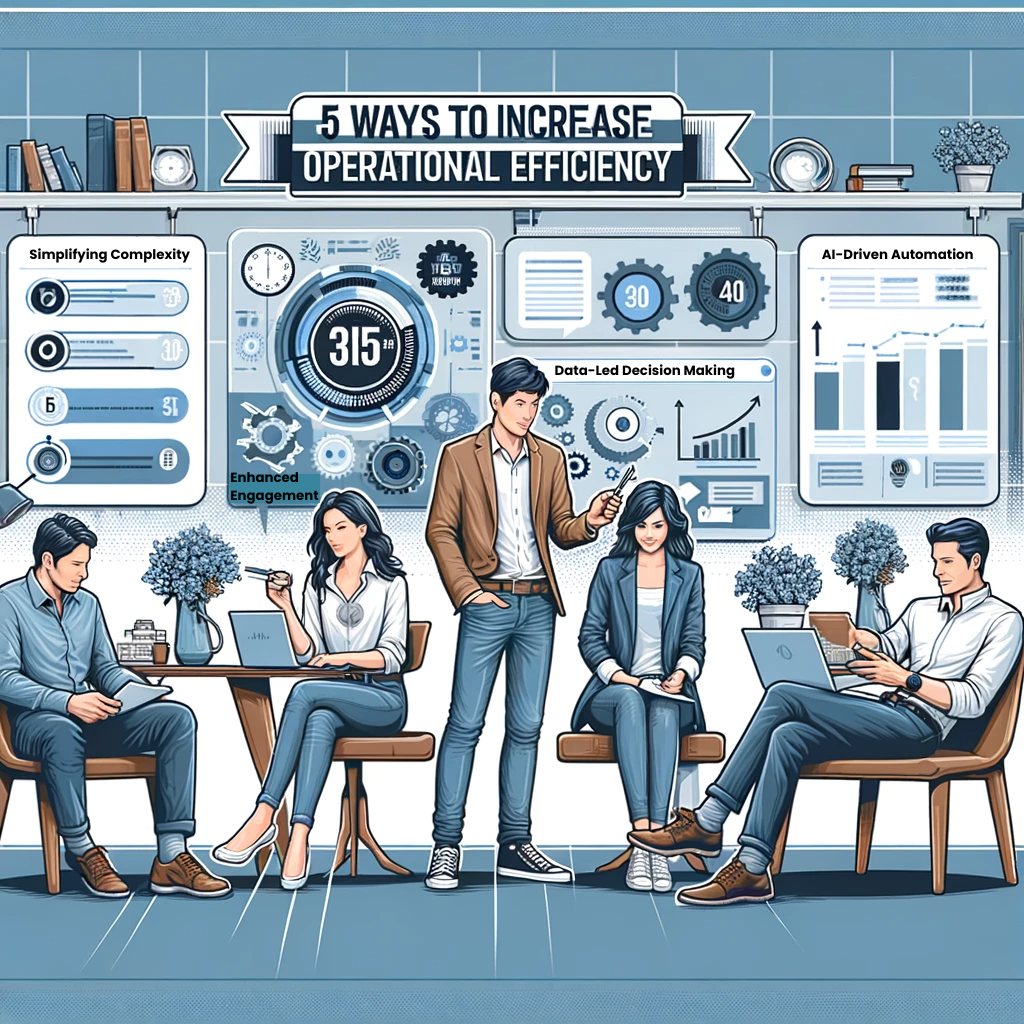5 Ways to Enhance Operational Efficiency in Marketing

In an era defined by digital innovation and rapid technological evolution, marketers are increasingly turning to AI to gain a competitive edge. The recent DPP Leaders’ Briefing highlighted several key themes that are reshaping the approach of businesses towards technology and operational efficiency. This article explores these themes and their implications for marketers, supported by industry statistics that underscore their significance.
1. Prioritizing Business Effectiveness over Technology
Strategic Focus: In the race to adopt the latest technology, it’s crucial for marketers to remember that the ultimate goal is business effectiveness. AI should not be viewed just as a technological advancement but as a tool to achieve specific business outcomes and operational efficiency such as increased sales, improved customer satisfaction, and market expansion.
Statistical Insight: As of 2023, 35% of companies are actively using AI, and an additional 42% are exploring its implementation for future use, according to a TechJury article. This data underlines the increasing reliance on AI as a critical driver for business value and operational efficiency, rather than merely a technological upgrade. This shift is indicative of the growing recognition within the business community of AI’s potential to enhance various aspects of operations, from customer engagement to process automation and beyond.
2. Simplifying Complexity for Better Results
Strategic Focus: Complexity in marketing strategies and technology can hinder operational efficiency and clarity. By simplifying processes and employing user-friendly tools, marketers can achieve better results and a clearer understanding of their campaigns’ impact.
Statistical Insight: Gartner reports that reducing complexity can help businesses save 20-30% in IT costs, underlining the financial benefits of simplification in technological adoption.
3. Enhancing Operational Efficiency through AI-Driven Automation
Strategic Focus: Automating mundane and repetitive tasks with AI allows marketing teams to focus on more strategic and creative aspects of their jobs. This not only boosts efficiency but also enhances job satisfaction among team members.
Statistical Insight: McKinsey’s research indicates that automation can reduce the time spent on repetitive tasks by 40-75%, significantly boosting operational efficiency.
4. User-Friendly Tools for Enhanced Engagement
Strategic Focus: In an era where seamless user experience is crucial, equipping marketing teams with intuitive and engaging tools becomes vital. This is particularly important in addressing the challenges posed by siloed teams, which can hinder productivity and disrupt brand consistency and control. User-friendly tools facilitate better integration and collaboration among different teams, breaking down silos and fostering a more unified approach to marketing strategies. This holistic approach not only increases adoption rates but also maximizes the value derived from technology investments, ensuring consistency and control across all brand activities.
Statistical Insight: According to Salesforce, 71% of workers express the desire for their workplace technology to mirror the level of sophistication and ease they experience in their personal tech usage. This underscores the importance of a high-quality user experience in the workplace, which is essential not just for individual productivity but for the cohesive functioning of cross-functional teams.
5. Data-Led Decision Making: A Cornerstone of Operational Efficiency
Strategic Focus: The ability to make informed decisions based on comprehensive data analysis is crucial. The data explosion is not just a challenge; it’s an enormous opportunity. In a modern economy, information should be the prime asset — the raw material of new products and services, smarter decisions, competitive advantage for companies, and greater growth and productivity. Marketers must harness the power of AI to gain deep data insights, enabling them to understand not just consumer behavior and market trends, but also the intelligence and effectiveness of their content and assets.
By leveraging AI for these insights, marketers can fine-tune their content strategies, personalize customer experiences, and predict future trends more accurately, leading to more effective and successful marketing campaigns. Bain & Company found that data-led decision-making can lead to a 5-6% increase in productivity, demonstrating the effectiveness of a data-first approach.
Statistical Insight: Bain & Company found that data-led decision-making can lead to a 5-6% increase in productivity, demonstrating the effectiveness of a data-first approach.
Achieving market dominance in the digital era requires a strategic approach centered around the effective use of AI. This involves a focus on enhancing business effectiveness, embracing simplicity, leveraging automation, providing user-friendly tools, and adopting data-led decision-making. Tools like Medialake, which epitomize these principles, are pivotal in equipping marketers with the capabilities they need to navigate and excel in a rapidly evolving landscape. With AI continually evolving and becoming more integral in shaping marketing strategies, its role in driving business success is becoming more pronounced. Marketers who harness the power of AI, particularly through advanced platforms like Medialake, are well-positioned to lead the way in innovation and set new benchmarks in their respective markets.
If you are interesting in finding out more about how Medialake can improve operational efficiency, get in touch for an introductory call today.





